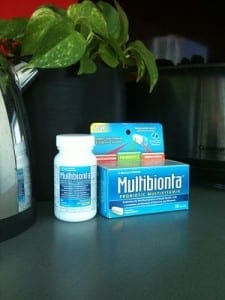
“Probiotic microorganisms may soften your immune system’s reaction by reducing your body’s inflammatory response.”
College students are notoriously sleep-deprived, live in close quarters and lead stress-filled lives, making them especially susceptible for contracting colds and upper-respiratory infections. For these reasons, a team lead by researchers at the University of Medicine and Dentistry of New Jersey–School of Health Related Professions (UMDNJ–SHRP) selected this population to study the effects of probiotic supplementation on health-related quality of life (HRQL) during the common cold.
The study, led by Registered Dietitian Tracey J. Smith, an adjunct professor at UMDNJ–SHRP, randomized 198 college students aged 18 to 25 and living on-campus in residence halls at Framingham State University in Massachusetts. Groups received either a placebo (97 students) or a powder blend containing Chr. Hansen’s probiotic strains BB-12® and LGG® (101 students) for 12 weeks. Each day, students completed a survey to assess the effect of the probiotic supplementation.
Although there have been previous studies on the effect of probiotics on the duration of colds and severity of symptoms, this is the first study to investigate the effect of probiotic strains on HRQL during upper-respiratory infections, taking into account duration, symptom severity and functional impairment—all important factors of HRQL. “HRQL is subjectively assessed by the patient and most simply defined as ‘the component of overall quality of life that is determined primarily by the person’s health and that can be influenced by clinical interventions,’” Smith says.
An article detailing the results of the study, “Effect of Lactobacillus rhamnosus GG (LGG®) and Bifidobacterium animalis ssp lactis (BB-12®) on health-related quality of life in college students with upper respiratory infections,” was published in the October 2012 issue of the British Journal of Nutrition. “We know that certain probiotic strains support immune health and may improve health-related quality of life during upper-respiratory infections,” says Smith. “This double-blind study assessed how probiotic supplementation affects the duration and severity of symptoms, and the impact of symptoms on the daily life of infected students.”
The study found that while all students caught colds at roughly the same rate, the students who took the probiotic supplementation experienced:
• A duration of colds that was two days shorter (four days vs. six days)
• Symptoms that were 34% less severe and
• A higher quality of life that resulted in fewer missed school days (15 vs. 34 missed by students taking the placebo).
What makes probiotics so effective in treating symptoms of upper-respiratory infections? “Cold symptoms like a stuffy nose and sore throat are the body’s inflammatory response toward a virus, not a direct action of the virus itself,” explains Smith. “Probiotic microorganisms may soften your immune system’s reaction by reducing your body’s inflammatory response.”
The Take-Away for the Public:







